
Yusuf The Dreamer
By Storybird

04 Jun, 2023

Once upon a time, there was a young boy named Yusuf who had a dream that the sun, moon, and 11 stars bowed down to him. Yusuf lived in a small village tucked away in a lush forest, surrounded by tall trees and a babbling brook. He spent his days helping his father in their family garden and playing with his younger sister, Mariam. Little did Yusuf know that his dream would set him on a path to an adventure beyond his imagination.

Excitedly, Yusuf went to his father Yaqub to tell him all about his dream. However, his father warned him not to tell his brothers, fearing that they might become jealous of Yusuf’s prophetic dream. Despite the warning, Yusuf couldn’t contain his excitement and shared his dream with his brothers anyway. They laughed at him and dismissed his dream as nothing more than a child's fantasy.

Yusuf's brothers became increasingly jealous of him, with some conspiring to get rid of him. They decided to throw him in a well, and after tricking him to accompany them, Yusuf found himself at the bottom of the well. Alone, scared, and bruised, Yusuf wondered why his brothers had done this to him, and what would become of him.

Yusuf was eventually pulled out of the well by a caravan of traders. Exhausted and bewildered, he found himself in a foreign land at the mercy of strangers. The traders took pity on Yusuf and sold him to an Egyptian nobleman, who recognised Yusuf's intelligence and potential. As Yusuf was led away from the bustling markets, he wondered what his new life in Egypt would bring.

Yusuf is sold into slavery to an Egyptian man named Aziz. Confused and scared, Yusuf wondered how his dream could come true from this new low in his life. Aziz treated Yusuf well and Yusuf showed him his intelligence and skills. As they grew to know each other, Yusuf's talents would lead to new opportunities that would change his fate forever.
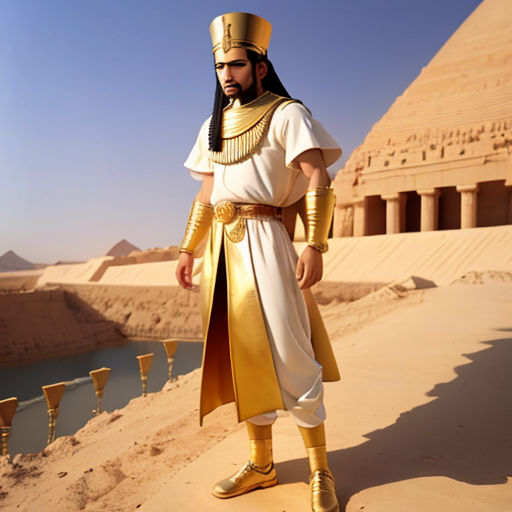
Yusuf quickly adapted to his new life, doing whatever Aziz asked of him. He worked tirelessly and tirelessly, making sure that everything was in perfect order. Eventually, Aziz came to rely on Yusuf more and more, until he became his most trusted adviser. Yusuf’s intelligence and hard work led to greater responsibilities and a chance to prove himself in front of the Pharaoh himself.
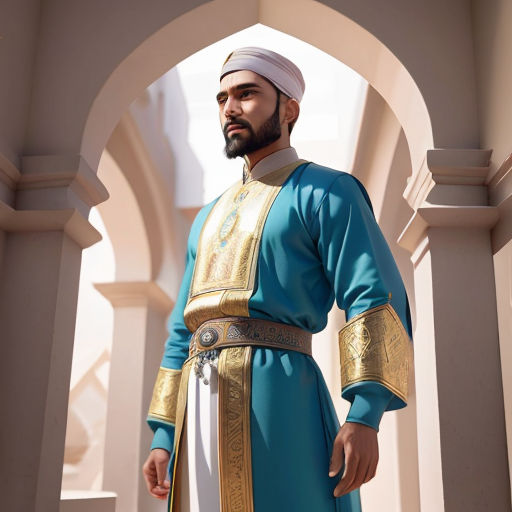
Aziz's wife was strikingly beautiful, and she noticed how Yusuf stood out from the other servants. She tried to seduce him, but Yusuf refused, saying he couldn't betray his duties or his loyalties. But Aziz's wife was not to be deterred, and she claimed to have been attacked by Yusuf when he refused her advances. She accused Yusuf of a serious crime, and he was thrown into jail, where he was left to languish in a filthy cell, wondering how his life had taken such a terrible turn.

There were two other prisoners in the cell with Yusuf who were troubled by dreams they couldn't interpret. Yusuf himself knew a thing or two about dreams, and he offered to help the prisoners. The first prisoner had a dream about making bread, while the second had a dream about carrying a basket of bread on his head. Yusuf told them that both dreams meant they would be freed soon, with the first prisoner given a job as a baker and the second a server. The prisoners were overjoyed and told Yusuf he had a gift for dream interpretation.

Yusuf interprets the dreams and they come true, but one prisoner is executed and the other is restored to his position.
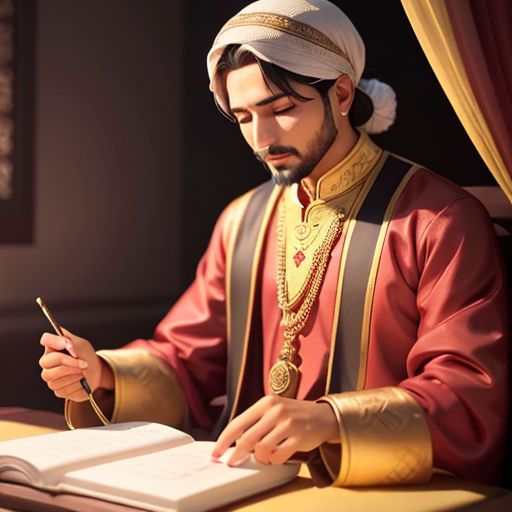
Yusuf's interpretation of the prisoners' dreams came true - one prisoner was given a job as a baker, and the other was restored to his position as a server. However, the darker side of Yusuf's gift became apparent when one of the prisoners was executed. Yusuf was left wondering how he could have predicted such a dire outcome. Despite this, Yusuf did not lose faith in his abilities, and he continued to interpret dreams to the best of his ability.

Years later, the king has a dream that no one can interpret.
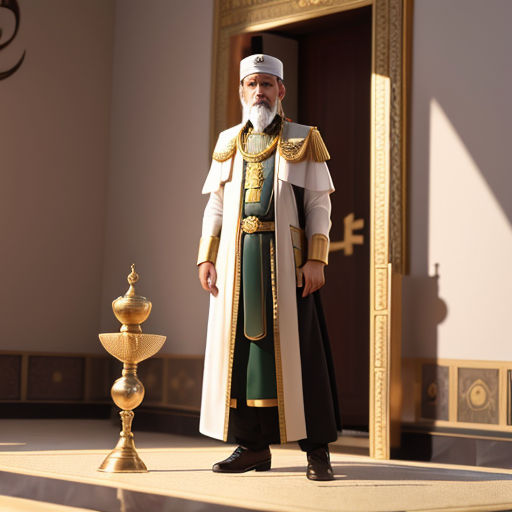
One day, the king of Egypt had a perplexing and mysterious dream that none of his wisest advisers could interpret. The news of the king's strange dream reached Yusuf, who was now considered the most knowledgeable interpreter of dreams in all of Egypt. Yusuf was summoned to the palace to see if he could provide any insight, and he listened intently as the king described his dream. Yusuf needed some time to consult with God and interpret the dream's meaning.

The former prisoner remembers Yusuf's interpretation of his dream and recommends him to the king.

As Yusuf was contemplating the meaning of the king’s dream, one of his former fellow prison mates, the restored server, remembered Yusuf’s interpretation of his own dream many years before. The restored server told the king that Yusuf had correctly interpreted his dream, which later proved to be true. Intrigued, the king summoned Yusuf and expressed his curiosity. Yusuf, trusting in God, confidently recited the interpretation of the king's dream.

Yusuf interpreted the Pharaoh's dream as a prophecy of seven years of abundance, to be followed by seven years of famine. Impressed with Yusuf, the Pharaoh made him an adviser and granted him power to oversee the implementation of his new policies. Over the years, Yusuf's reputation grew, and his brothers heard rumors of a powerful man in Egypt who had risen to the top from humble beginnings. Yusuf's heart swelled with the thought of seeing his brothers again, and he began to lay a plan of action.

Yusuf tested his brothers' character and loyalty by accusing one of stealing and threatening to keep him as a slave. As his brothers tried to plead their innocence, Yusuf watched them with a keen eye, looking for proof of their changed character. He saw the regret in their eyes and the pain they had caused him so long ago. He also saw the desperate love they had for each other, and the loyalty that brothers should have toward one another. Yusuf battled with his emotions, wondering if he should reveal himself to them, but kept his senses and remained concealed.

Yusuf's other brothers begged him to show mercy and offered to take the accused brother's place. Yusuf witnessed how his brothers had changed and how they had matured over the years. Deep in thought, Yusuf wondered if he should reveal himself to them or punish them for their deeds of the past. Although he was emotional and his heart was aching, Yusuf decided to continue testing his brothers' sincerity. He forgave the accused brother and made them an offer that was difficult to refuse.
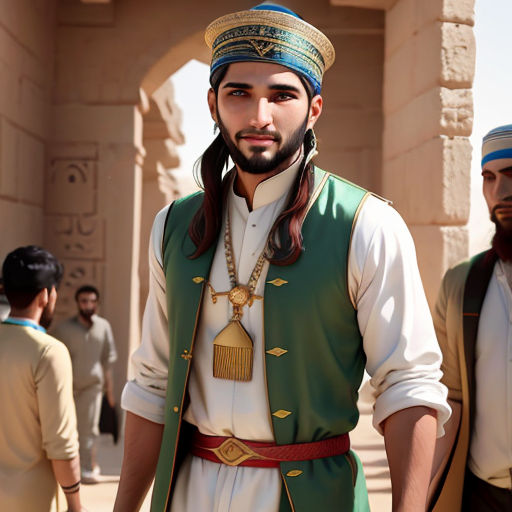
Yusuf's heart ached to reveal his identity to his brothers, but he was still unsure if they had truly changed. However, after much thought and reflection, Yusuf finally decided to reveal himself to them. Overwhelmed with shock and disbelief, his brothers fell to their knees and begged for forgiveness. Yusuf forgave them and embraced them with open arms, tears of joy streaming down his face. Finally, after all these years, he had been reunited with his beloved brothers.
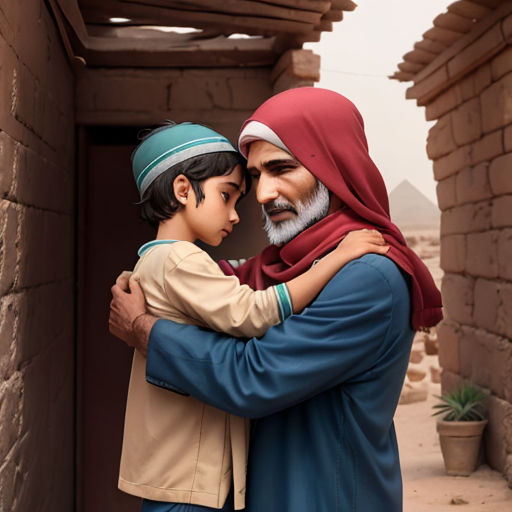
Yusuf's family moved to Egypt to reunite with him. His father, Yaqub, was amazed to see his long-lost son and gave him a warm and loving hug. Yusuf showed his family around the prosperous land that he had helped cultivate, and his family was moved by the graciousness and generosity of the people. Together, Yusuf and his family were able to rebuild their relationships and create new memories in the land that had once been only a dream to Yusuf.

As the famine ravaged through the land, Yusuf, with the authority granted by the Pharaoh, took charge to ensure Egypt's survival. He stored away food and resources in the years of abundance, so the land would never go hungry again. Yusuf's expertise and generosity helped his people get through the years of famine without succumbing to starvation or malnutrition. His people realized that, with Yusuf as their leader, they had a bright future ahead of them. Yusuf's legacy became synonymous with kindness, compassion, and wisdom, and he became known as a great leader who had saved his people from starvation.